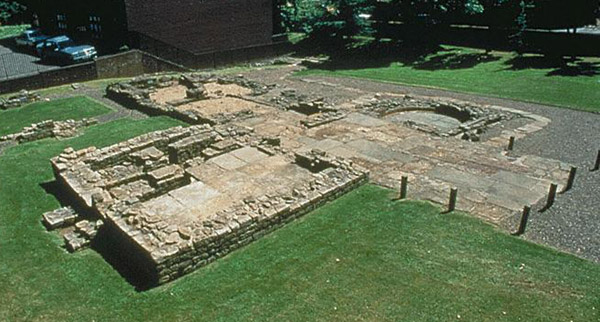Well, more like Friday Ancient History Blogging this time around.

Publius Cornelius Tacitus is generally considered to have been among the very best of the ancient Roman historians. Born c. A.D. 56, he composed a number of historical works, including a biography of his father-in-law, the Roman general Gnaeus Julius Agricola. Agricola is primarily remembered for having carried out a successful series of campaigns in what is now Scotland, culminating in a decisive victory at the Battle of Mons Graupius, the actual location of which is unknown.

The Roman military bathhouse at Bearsden, Scotland, just to get some archaeological material in here!
Agricola carried out these campaigns during the reign of the Emperor Domitian, and this fact put Tacitus in a bit of a quandary, for he loathed and despised everything about that emperor. So how then was Tacitus to write the biography of a man he idolized, but who happened to be carrying out the policies of man he abhorred? Well, Tacitus took the tried-and-true path, and put his own feelings about Domitian, and about Roman imperialism in general, into the mouths of Rome's enemies. In particular, he "recorded" the speech of Calgacus, Chief of the Caledonii, to his warriors immediately before the climactic battle at Mons Graupius. In this fiery speech, Tacitus searingly criticizes Roman greed and imperialism through the mouth of the Celtic warlord. Particularly fierce is this portion:
"But there are no tribes beyond us, nothing indeed but waves and rocks, and the yet more terrible Romans, from whose oppression escape is vainly sought by obedience and submission. Robbers of the world, having by their universal plunder exhausted the land, they rifle the deep. If the enemy be rich, they are rapacious; if he be poor, they lust for dominion; neither the east nor the west has been able to satisfy them. Alone among men they covet with equal eagerness poverty and riches. To robbery, slaughter, plunder, they give the lying name of empire; they make a desert and call it peace."
On a related note, have I mentioned how irritated it makes me when people question whether there is anything still relevant in Classical literature?


No comments:
Post a Comment